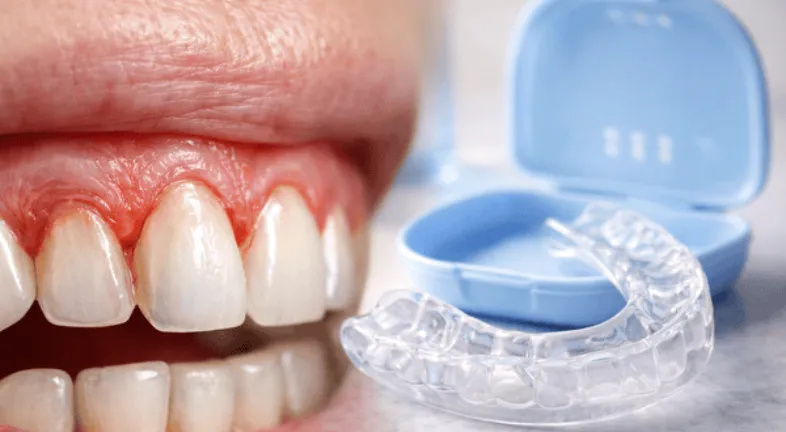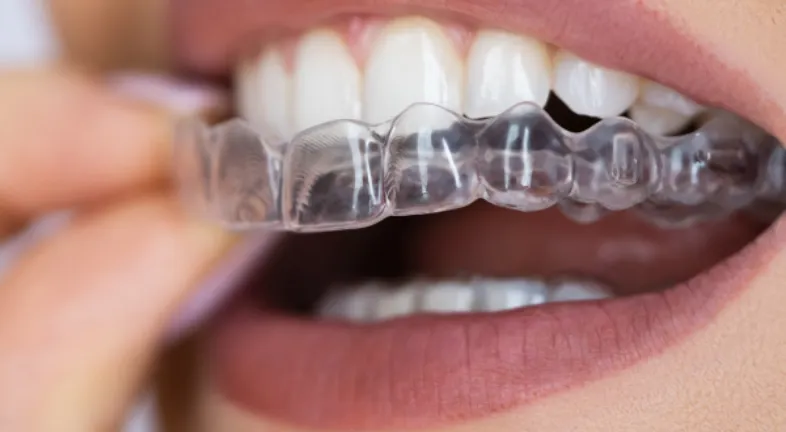
Table of Content
As we age there are several changes that occur in our bodies, as well as a number of things that we can let fall slightly by the wayside. However, when we age, letting our dental health slip is something that we can’t afford to do. Our dental health is connected to the health of our overall body, so as a result it is important that someone who is elderly takes care of their oral health.
There are things that can impact our health at any age, which is why dental care is so important. In early life, there are things that we know we need to do to look after our teeth and our gums. What you don’t want to do as you get older is to let that all slip and stop your healthy routine. There are a number of dental treatments that you can have to help, though, so if your oral health isn’t great, it can be rectified. Even something like teeth straightening can really help, as it is one of the important dental care treatments to improve dental health.
There can be a number of dental health challenges that can be common in seniors, from things like having a dry mouth, to periodontal disease. Our dental health does directly impact other aspects of our health, so in someone who is elderly, it still has an important place in our routine and how we look after ourselves. These kinds of issues do need to be taken seriously, as they can directly impact heart health, as well as other issues like digestive health. With that in mind, here are some of the reasons why geriatric dentistry is so important and why making an effort with it really matters.
There is a lot of research that has shown that there is a strong connection between gum disease and heart disease. That is why maintaining good oral hygiene as you age is something that is a really powerful weapon to have, protecting against things like heart attacks, strokes and conditions relating to the heart. In fact, it has been found that people with periodontal disease are twice as likely to have heart disease or related conditions like coronary artery disease. If there are some common dental health problems like gum disease and even missing teeth, then it can be an indicator of measuring your risk of heart disease, as well as your cholesterol levels. So don’t underestimate the link, especially as you get older.
If you were to get severe gum disease as you got older, then it can impact negatively on your health as it hinders the body’s ability to be able to use insulin as it should. If this is the case, then having high levels of sugar in the blood can be common, and can lead to diabetes, and also things like gum infections. That is why taking good care of your teeth when you’re older is important, alongside having regular checkups, and then you’ll give yourself a good chance of preventing getting a condition like this.
There are some strong links to getting pneumonia as an adult and poor oral hygiene. When you breathe in some bacterial droplets through your mouth, they will inevitably go to the lungs. Elderly people are going to be more susceptible to this kind of condition, and that is why having good oral hygiene is a great way forward to prevent this kind of bacterial spread.
Getting a dry mouth is something that we can all experience from time to time. For elderly patients, it can be as a result of taking some medications, as well as a result of something like radiation cancer treatments around the head and neck. Saliva is something that helps to keep the mouth wet, and that can actually help to protect against things like tooth decay and infections, as it controls the bacteria in the mouth. If you have a mouth that is prone to being drier or are getting a dry mouth because of a medical condition faced by many older people, then it could lead to some problems.
Elderly people are more likely to wear dentures than anyone at any other age. If they are poorly fitted, then it can lead to bad dental hygiene, or lead to a buildup of fungus under the denture. This can then lead to infection and inflammation which can be most uncomfortable and problematic. So it is another reason why good elderly dental care is so important.
Age by itself isn’t something that impacts dental health. However, being older, there could be more medical conditions that you’re more likely to experience, such as arthritis or a cognitive disorder, that could make brushing teeth or doing something like flossing much trickier. In a care setting, elderly patients are much more likely to have to rely on someone’s help with brushing their teeth. As a result, if the right kind of priority isn’t given to this area, and there isn’t a firm understanding on the negative impact poor oral health can have, then it can lead to health issues, some of which are outlined above.
Some of us are also more genetically and medically predisposed to certain dental problems, meaning the risks are higher, no matter what you do. Any prescription drugs that you are taking can have an impact as well. As a result, geriatric dental care needs to be somewhat of a priority, which is why it is so important to schedule in some dental checkups, as well as getting in touch with experts like ourselves for important dental treatments.
Curated the best for your knowledge
.webp) Cavities: Why Cleaning Your Essix Retainer Is Important
Cavities: Why Cleaning Your Essix Retainer Is ImportantCavities do not usually start with pain; they begin quietly. A thin film of plaque forms, bacteria settle in, and before you realize it, enamel has started to weaken. The risk of cavities often increases when you wear oral appliances like Essix retainers. However, the retainer itself is not the issue; improper maintenance and neglecting cleaning are the main culprits. If you have invested in orthodontic treatment, whether traditional braces or clear aligners, your retainer is what protects that investment. But an unclean one just makes matters worse. So, let’s walk through this guide to understand why cleaning your Essix retainer is important.
Read More Can Mouthguards Cause Gum Recession
Can Mouthguards Cause Gum RecessionMouthguards are usually seen as the “good guys” of dental care. They protect teeth from grinding, cushion heavy bites, and help prevent long-term damage. So when someone notices sore or receding gums while wearing one, confusion sets in fast. Can mouthguards cause gum recession, or is something else going on? The honest answer isn’t a simple yes or no. Gum recession almost never has one single cause. It’s usually the result of pressure, inflammation, habits, and time all working together. Mouthguards can sometimes contribute to irritation, but in many cases, they’re actually helping prevent worse damage. Understanding the difference matters more than blaming the device.
Read More How to Clean Essix Retainers
How to Clean Essix RetainersIf you wear Essix retainers, commonly known as clear retainers, you already know they are both amazing and annoying. Essix retainers are nearly invisible, lightweight, and comfortable. At the same time, they stain easily, hold onto odors, and can appear questionable if not properly cared for. Cleaning Essix retainers sounds simple. Rinse, brush, done. But if you’ve ever pulled yours out of its case and wondered why it smells off or looks slightly yellow, you already know there’s more to it. In this blog, we will guide you through how to clean Essix retainers properly, what to avoid, how often to clean them, and why they change color over time.
Read MoreQuick Links

Heading